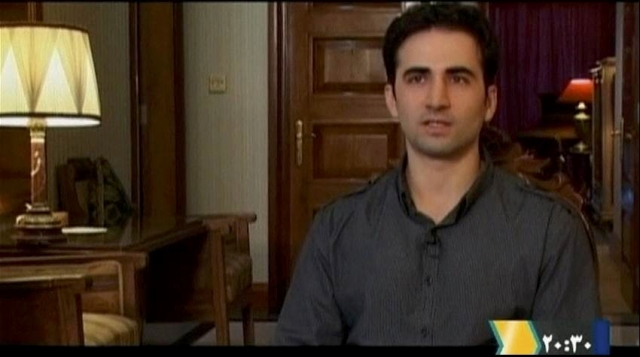President Obama’s Iran deal has drawn criticism over one omission: It does not affect the four Americans being held hostage by the Iranian government.
These Americans turned prisoners include Washington Post journalist Jason Rezaian, former U.S. Marine Amir Hekmati, pastor Saeed Abedini and former FBI agent Robert Levinson.
Jason Rezaian
In Tehran, having a press badge can result in prison.
Jason Rezaian is a 39-year-old dual American-Iranian citizen who was stationed in Tehran to cover regional affairs. Rezaian has been a correspondent for The Washington Post in Tehran for two years, covering stories from a growing baseball scene in Iran to local corruption.
In 2014, Rezaian was detained for questioning, along with his wife.
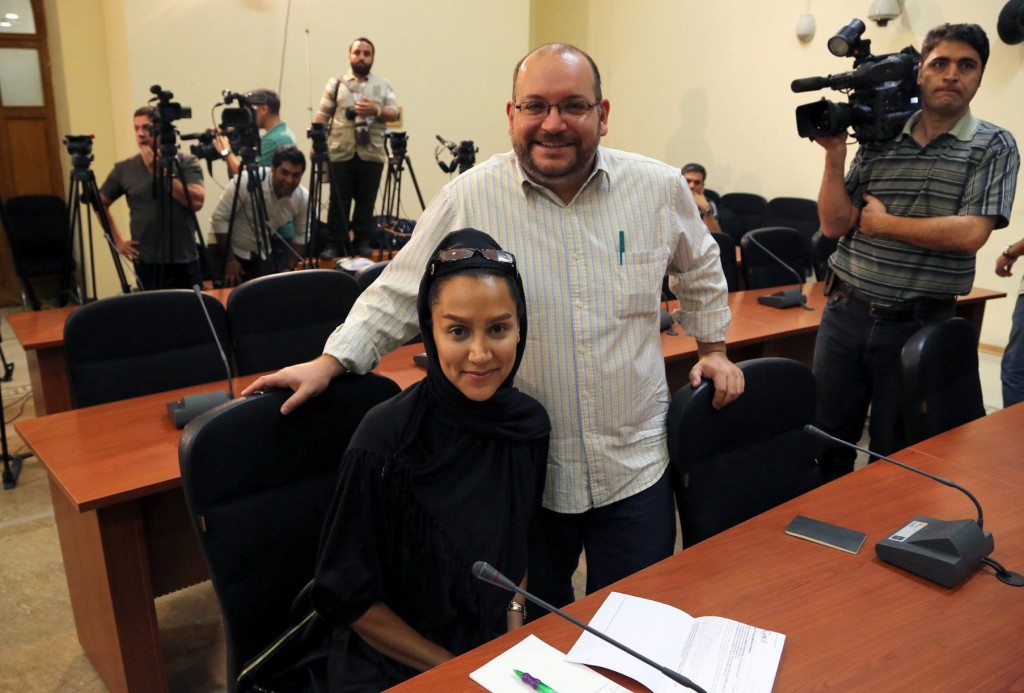
Washington Post Iranian-American journalist Jason Rezaian and his Iranian wife Yeganeh Salehi during a foreign ministry spokeswoman weekly press conference in Tehran, Iran. (Photo: Stringer/EPA/Newscom)
Rezaian has been kept in Evin Prison, while his wife was released on bail, for the charges of espionage, working with hostile governments and “propaganda against the establishment.”
Rezaian has been held for long periods of time in solitary confinement while his trial has already gone through multiple hearings. He could be convicted of 10 to 20 years in prison for his “charges.”
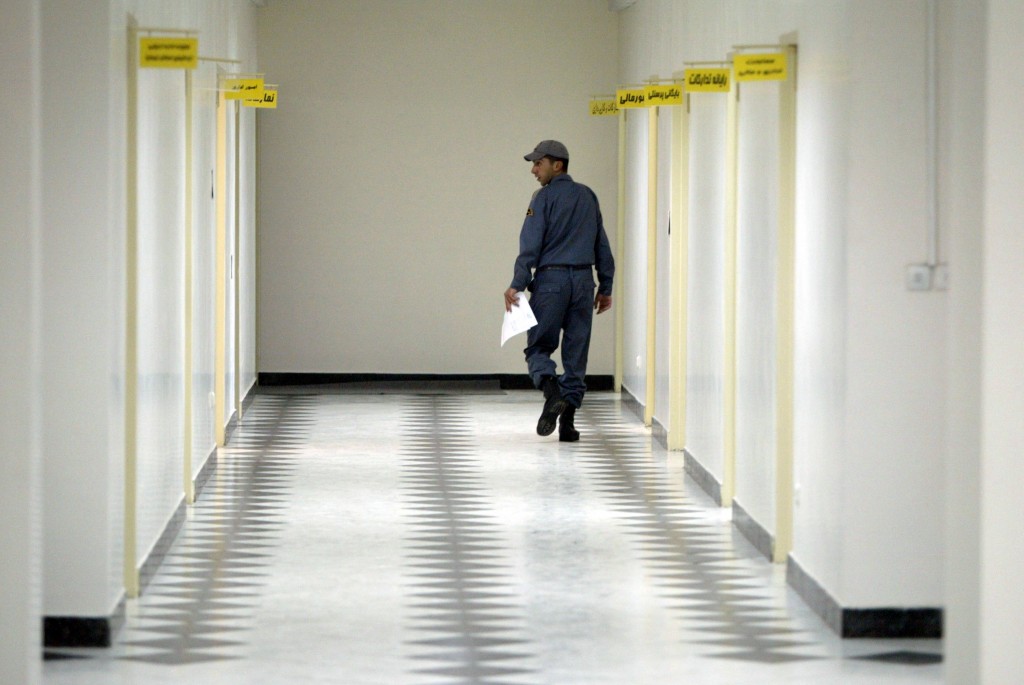
A guard walks through the halls of Evin Prison, which is known for brutality and abuse of its prisoners. (Photo: Mohammed Kheirkhah/UPI/Newscom)
“We knew the trial would have to start before there would be an end to it,” his mother, Mary Rezaian, told The New York Times. “We have no idea how many sessions this trial will take. It seems to be going quite slowly.”
Rezaian has had the shortest length of imprisonment out of these American captives, as he has been held for a year. According to the Committee to Protect Journalists, there are currently 30 journalists imprisoned in Iran.
Robert Levinson
Working for the government does not always have its perks.
Robert Levinson was kidnapped in 2007 from Kish Island off of Iran, where he was working for a rogue CIA operation.
The 67-year-old grandfather from Florida was hired as a contractor for the Office of Transnational Issues at the CIA when he disappeared. The CIA paid the Levinsons $2.5 million to avoid a lawsuit due to the sensitive nature of this case.
The Iranian government denies being responsible for Levinson’s disappearance, but many believe they are aware of his location.
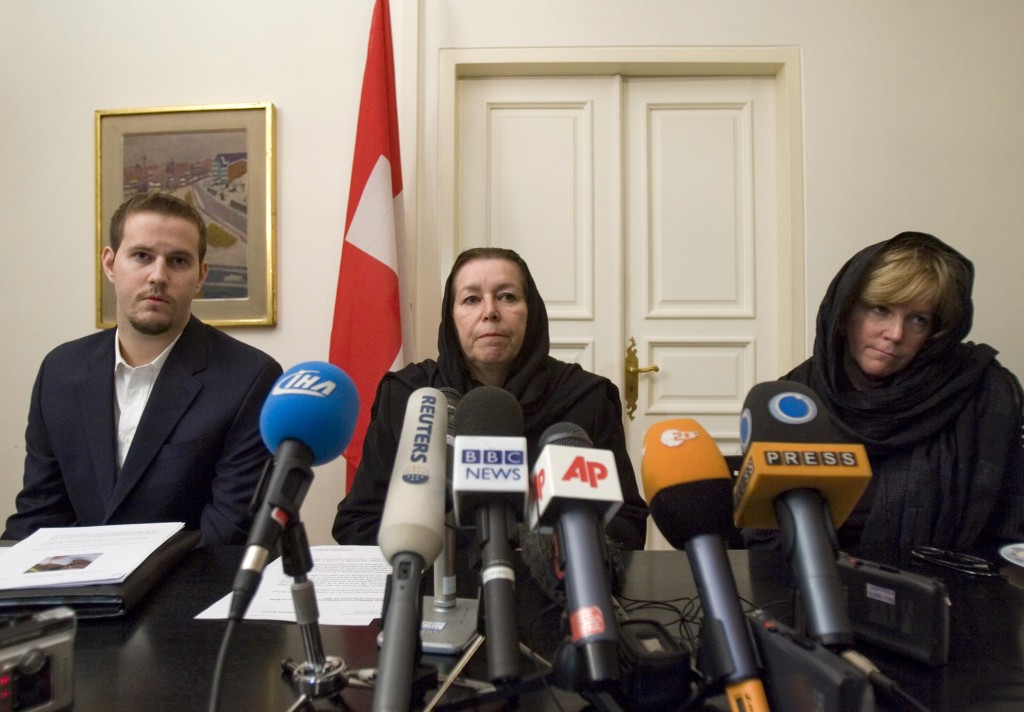
Robert Levinson’s family holds a press conference to plead for the release of their husband and father. (Photo: Morteza Nikoubazl/Reuters/Newscom)
The Levinson family was sent proof of life pictures in 2011 that taunted the family and the United States for failing to secure his release.
“When I first saw these photos, I realized how unrecognizable my father had become … It was clear that on a daily level, he has been living through hell,” Levinson’s son, David, wrote for CNN.
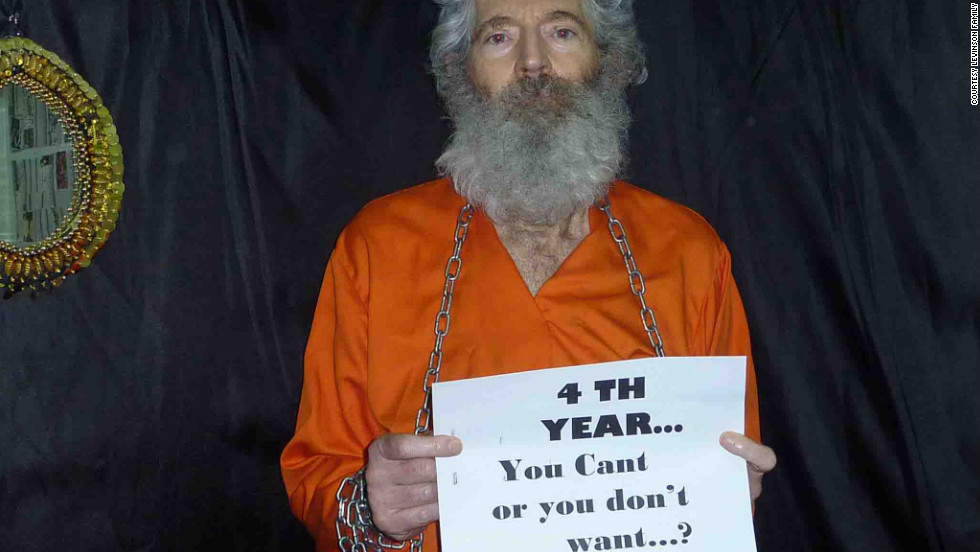
This picture of Robert Levinson was sent to his family four years after his disappearance. (Photo: CNN.com/the Levinson family)
“I believe in my father, and I know how determined he is to get home. There is no doubt in my mind that one day he will succeed, that one day we will see each other again and he will meet my future wife,” David Levinson said. “She is hopeful for that day as well, and longs to meet the man I am constantly trying to emulate each day.”
According to CBS News, Levinson is the longest-held American hostage in the history of the U.S., as he has been missing for over eight years. The FBI has increased its reward from $1 million to $5 million for any “information leading directly to his safe location, recovery, and return.”
Saeed Abedini
Pastor Saeed Abedini met his wife in Tehran, shared his faith in Tehran, and is now imprisoned in Tehran.
Abedini had traveled to Iran multiple times starting in 2009 in the efforts to construct an orphanage.
The 35-year-old pastor from Idaho was abruptly taken into custody by Iranian officials in 2012 under the guise of undermining national security.
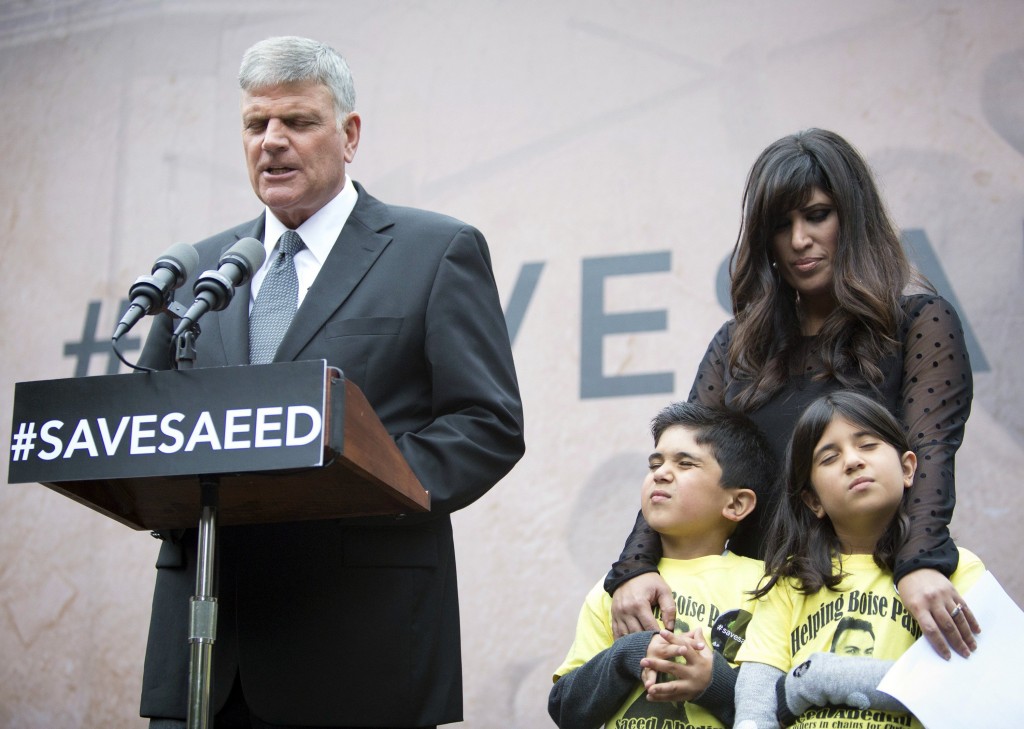
Rev. Franklin Graham prays with Naghmeh Abedini and Abedini’s two children, Jacob, 6, and Rebekka, 8, at a prayer vigil outside the White House in Washington, D.C. (Photo: Toby Jorrin/MCT/Newscom)
Abedini was convicted a year later to serve eight years in Evin Prison for starting local home churches.
He is frequently subjected to beatings by prison guards, psychological torture and long periods of solitary confinement.
There has been a global campaign started by the American Center for Law and Justice that has reached over one million signatures asking for Abedini’s release.
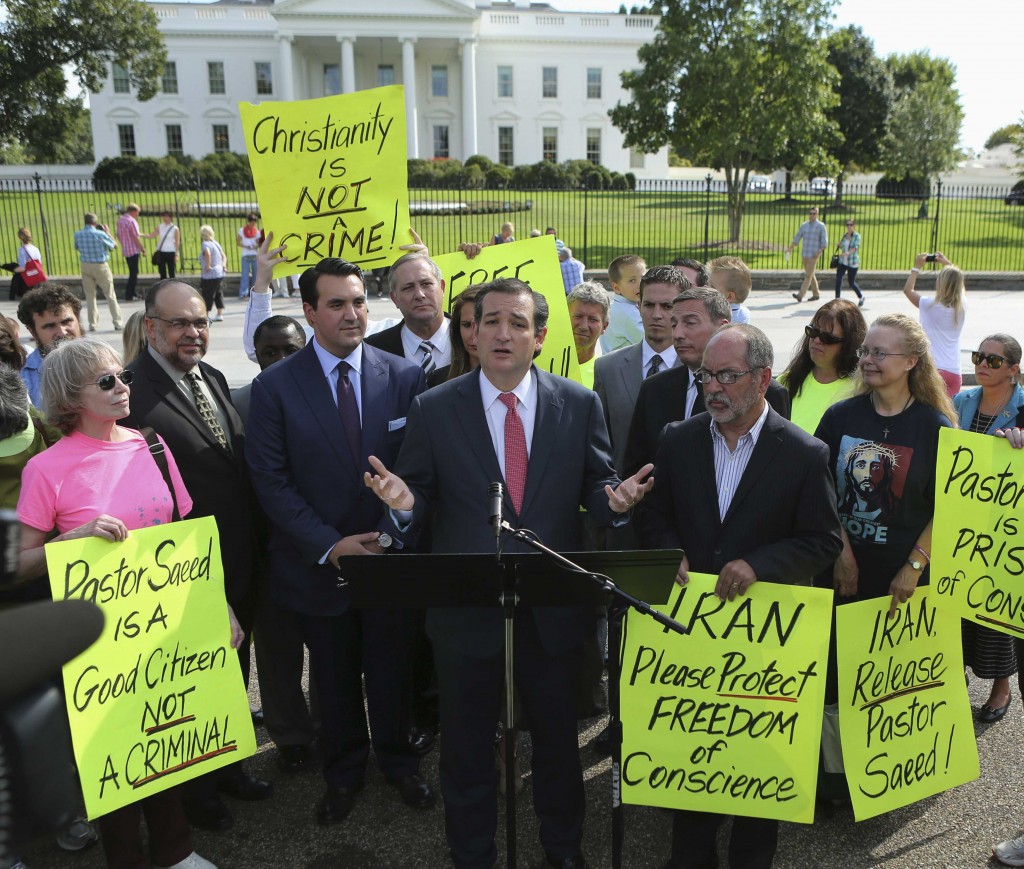
Sen. Ted Cruz delivers his remarks with members of the Christian Defense Coalition in front of the White House in Washington on Sept. 26, 2013. The event marked the one year anniversary of Saeed Abedini, (Photo: Gary Cameron/Reuters/Newscom)
Naghmeh Abedini wrote a letter to her husband on their anniversary, detailing how life has been without him.
“For 1,007 days I have remembered you in prayer and felt your pain. For 1,007 days I have been in prison with you as your wife and soul mate. Each night I have struggled with anxiety and a sense of urgency that we need to get you out,” Abedini wrote. “Each night that I have laid my head on our bed, I have hugged your empty spot and have wept myself to sleep. Each morning I have woken up with an excruciating pain to my new reality without you. I have prayed. Oh how I have prayed.”
Amir Hekmati
Visiting aging relatives led to the death penalty for the then 28-year-old ex-Marine.
Amir Hekmati, a dual citizen of Iran and the United States, served the United States from 2001 to 2005 as a Marine specializing in linguistics.
He visited Iran for the first time in 2011 in order to celebrate Ramadan in Tehran with his extended family.
Hekmati never made it to the celebration, however, as he was taken by Iranian authorities and wasn’t heard from until a week later.
After a forced confession of espionage, Hekmati was sentenced to death after a three hour, closed-door trial.
Three months later, the case was repealed based on shaky evidence, and a new trial was ordered. His new crime was “cooperating with hostile governments” and Hekmati was sentenced to 10 years in prison.
“We were worried about him a lot when he was in Iraq,” Hekmati’s mother, Behnaz, said. “But he was free. He wasn’t in prison. We worry now because I can’t talk to him. I’m more worried now, more than when he was in military.”
Obama commented on the status of these prisoners when asked during a press conference last week about why the hostages were not connected to the Iran deal.
“Now, if the question is why we did not tie the negotiations to their release, think about the logic that that creates,” Obama said. “Suddenly, Iran realizes, you know what, maybe we can get additional concessions out of the Americans by holding these individuals—makes it much more difficult for us to walk away if Iran somehow thinks that a nuclear deal is dependent in some fashion on the nuclear deal.”
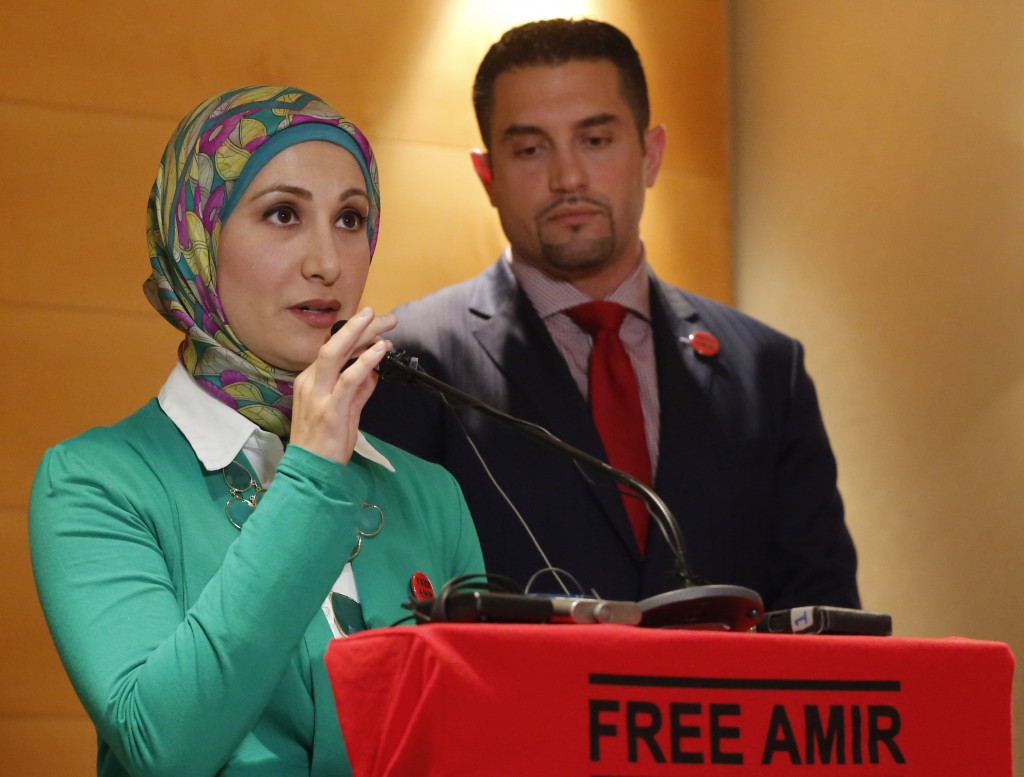
Amir Hekmati’s sister, Sarah, discusses her brother’s situation at a news conference in Vienna, Austria. (Photo: Leonhard Foeger/Reuters/Newscom)
While support and recognition for these Americans trapped in Iran continues to grow, the mood remains ever hopeful of securing their freedom. 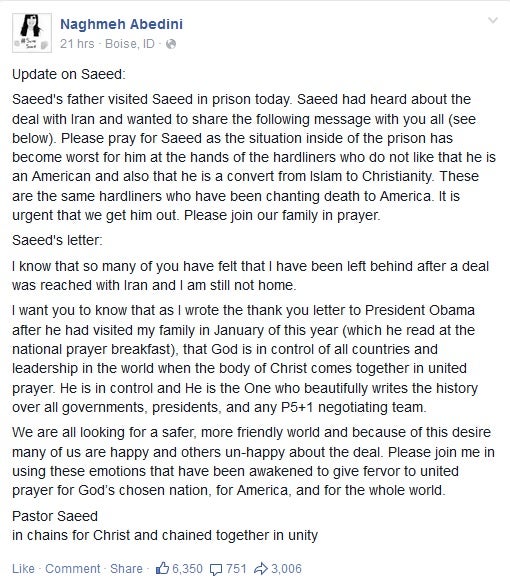
“Nobody’s content, and our diplomats and our teams are working diligently to try to get them out,” Obama said.





























